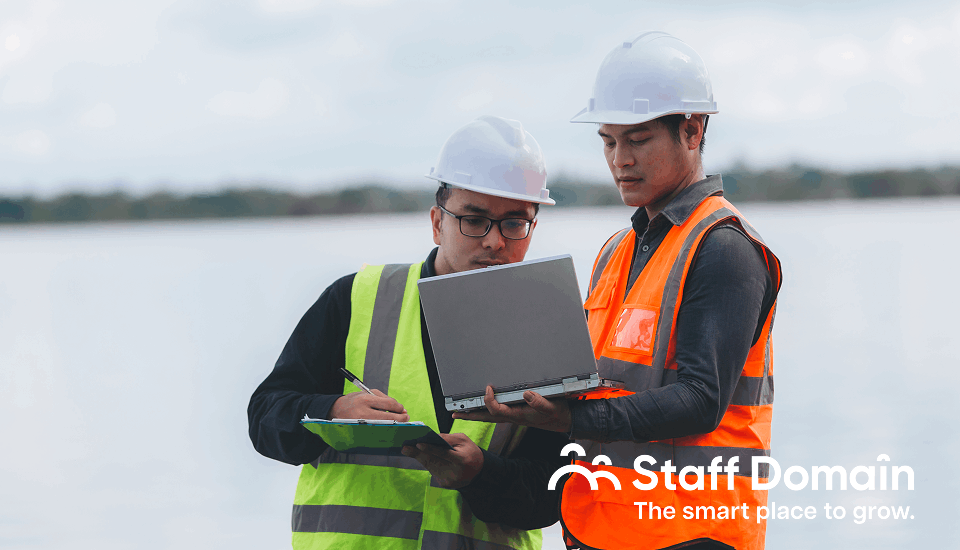Legal Tech Is Changing the Game: Are Your Paralegals Ready?
Terrence Roice Ignacio
on
July 18, 2025
Legal tech outsourcing is no longer just a cost-saving strategy, it’s a competitive necessity for modern law firms. As artificial intelligence, case management platforms, and automated legal workflows become mainstream, the role of the traditional paralegal is being redefined. Today’s legal support staff are expected to be proficient in a wide range of technologies, from document automation tools to eDiscovery platforms.
Australian firms are feeling the pressure. Rising workloads, high salary expectations, and a growing reliance on tech-driven operations have triggered a shift towards offshore solutions. But offshoring isn’t what it used to be; it’s now about accessing skilled talent trained in legal technology who can seamlessly integrate into remote teams.
Yet, alongside these benefits come risks. Fair Work rulings are increasingly applying Australian employment laws to overseas staff, raising serious compliance questions for businesses that fail to engage with offshore talent correctly. Hiring through Employer of Record (EOR) and Business Process Outsourcing (BPO) providers offers a smart, legally sound alternative that not only streamlines operations but also protects your firm from costly missteps.
In this article, we’ll explore why legal tech is transforming the way law firms work and how offshore paralegal teams, properly hired and supported, can give your practice a critical edge in today’s fast-changing legal landscape.
The Rise of Legal Tech and Why Paralegals Must Evolve

The legal industry is changing fast. Tools like AI-powered document review, automated workflows, and cloud-based case management software are no longer futuristic; they’re everyday essentials. And that means one thing for law firms: your paralegals need to evolve.
Today’s paralegal isn’t just filing paperwork or booking meetings. They’re navigating systems like Clio, LEAP Legal Software, and Smokeball, managing client data, and helping lawyers move cases forward using automation. Legal support now requires digital fluency, not just legal know-how.
In fact, the Law Council of Australia has warned that firms must improve digital skills or risk falling behind. Without tech-savvy staff, firms can struggle to meet client expectations, maintain compliance, or deliver efficient service.
It’s not just the large firms feeling the pressure. Smaller practices, corporate legal teams, and even solo lawyers are adopting automation to stay competitive. Technology levels the playing field, but only if your team knows how to use it.
This is where legal tech outsourcing can make a real difference. Offshore paralegals trained in legal tech tools can take over time-consuming tasks like:
- Data entry and file management
- Document automation
- Matter intake and reporting
By offloading these admin-heavy jobs, your local staff are freed up to focus on higher-value legal work, and your entire practice becomes more efficient and future-ready.
The Case for Legal Tech Outsourcing: Skills, Scale, and Savings

Legal tech outsourcing isn’t just about saving money; it’s about building smarter, more scalable legal teams. By hiring offshore paralegals trained in platforms like Clio, LEAP, and Smokeball, Australian law firms gain access to on-demand expertise without the overheads that come with local hires.
These offshore professionals aren’t basic admin staff. Many are skilled in legal document automation, AI-assisted contract review, and digital case management. They know how to use cloud-based tools to handle workflows, monitor deadlines, and maintain compliance. In short, they’re ready to plug into your systems and start delivering from day one.
The value here is threefold:
Skills
Legal tech outsourcing isn’t just about saving money; it’s about building smarter, more scalable legal teams. By hiring offshore paralegals trained in platforms like Clio, LEAP, and Smokeball, Australian law firms gain access to on-demand expertise without the overheads that come with local hires.
These offshore professionals aren’t basic admin staff. Many are skilled in legal document automation, AI-assisted contract review, and digital case management. They know how to use cloud-based tools to handle workflows, monitor deadlines, and maintain compliance. In short, they’re ready to plug into your systems and start delivering from day one.
The value here is threefold:
Scale
With the right support partner, you can scale fast. Need one paralegal today, five next quarter? Outsourcing gives you flexibility, without long-term contracts or the cost of recruiting and onboarding locally.
Savings
Offshore hiring typically reduces labour costs by up to 70%. But it also saves time. Your senior team no longer must manage routine admin, which improves billable utilisation and boosts client value.
As highlighted in the Staff Domain eBook called “A New Cautionary Tale for Australian Businesses”, the key to success is compliance. Legal tech outsourcing should always be done through trusted providers who understand Australian labour laws. Hiring through Business Process Outsourcing (BPO) firms or Employer of Record (EOR) services protects your firm from misclassification issues, backpay claims, and legal penalties.
Offshore Hiring Comes with Risks, Here’s What You Need to Know

Offshore legal support brings speed and savings, but only when done compliantly. Misclassifying offshore legal assistants as independent contractors can expose your firm to serious legal risks under Australian labour laws.
In the 2024 Pascua v Doessel Group case, the Fair Work Commission ruled that a Philippines-based legal assistant was an employee, despite working remotely and under a contractor agreement. The employer faced penalties related to superannuation, unfair dismissal, and backpay.
That ruling changed the game for offshore hiring.
The safest path? Partner with a BPO or Employer of Record (EOR) who handles compliance for you. These partners:
- Hire staff legally under local and Australian law
- Manage payroll, super, and contracts
- Protect you from penalties and litigation
Want the full story?
Download our free eBook for practical guidance on avoiding Fair Work breaches when hiring offshore legal talent.
BPOs and EORs: Your Shield Against Legal Risk

Partnering with a BPO or Employer of Record (EOR) ensures your offshore paralegals are hired legally and compliantly. These partners handle everything from contracts to tax and benefits, so you can focus on growing your practice with peace of mind.
Benefits include:
- Legal protection from misclassification
- Efficient onboarding and HR support
- Scalable, tech-ready talent
Conclusion: Smarter Legal Support Starts Offshore
Legal tech is no longer optional, it’s a necessity. As law firms evolve to meet rising client expectations and embrace automation, paralegals must be ready to operate in a tech-driven environment. But building that capability in-house can be expensive and time-consuming.
That’s where legal tech outsourcing becomes a strategic advantage. By tapping into offshore talent trained in legal software and AI tools, you gain flexibility, efficiency, and scale, without sacrificing quality.
Still, with opportunity comes responsibility. Misclassification risks, legal compliance, and Fair Work rulings make it clear: offshore hiring must be handled with care.
Staff Domain’s offshore outsourcing solutions connect your business to a highly experienced global talent pool for game-changing results. Effortlessly manage your offshore workforce with our comprehensive compliance, payroll, and HR support, and benefit from fixed, transparent pricing in your local currency. Contact us today or schedule a meeting with our sales team to quickly source the right offshore team for your business.
Frequently Asked Questions About Legal Tech Outsourcing
1. What is legal tech outsourcing?
Legal tech outsourcing involves hiring offshore paralegals or legal support staff who are trained in legal software and automation tools. These professionals help law firms handle administrative and tech-enabled legal tasks more efficiently.
2. Is it legal to hire offshore paralegals in Australia?
Yes, it’s legal, but compliance is crucial. Australian labour laws, including the Fair Work Act, can apply to offshore workers if they’re misclassified as contractors. That’s why it’s essential to work through BPOs or EORs that ensure full legal compliance.
3. What legal tech tools should offshore paralegals be familiar with?
Offshore paralegals should have experience with tools like Clio, Smokeball, LEAP, and document automation software. Familiarity with communication platforms like Slack and project tools like Trello is also valuable.
4. What’s the safest way to outsource legal support offshore?
The safest approach is through a trusted Employer of Record (EOR) or Business Process Outsourcing (BPO) provider. These partners manage compliance, contracts, payroll, and ensure your offshore team meets Australian standards.









































